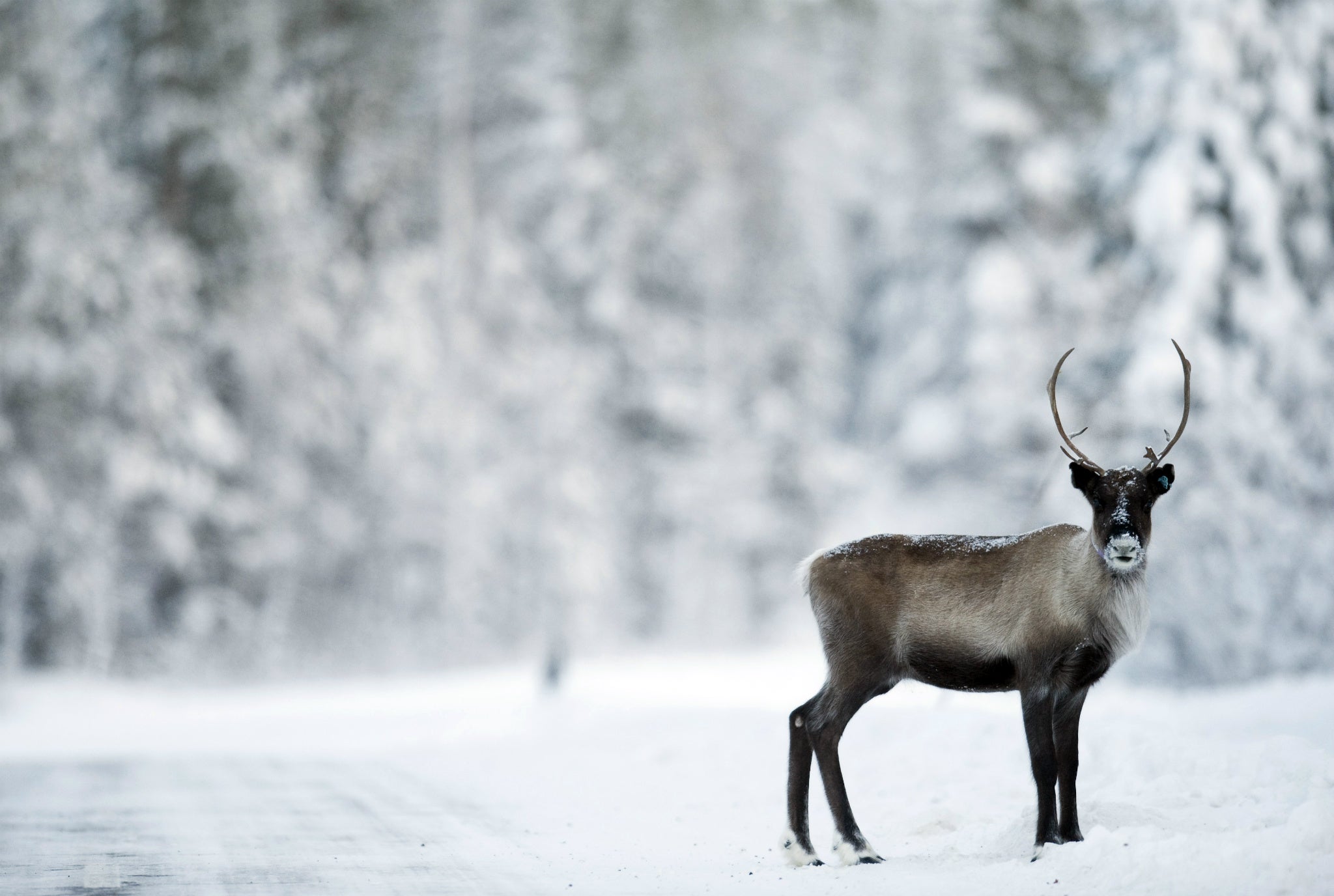Reindeer shrinking in size due to warmer Arctic temperatures
Frozen rain on top of snow means they cannot reach their food

Your support helps us to tell the story
From reproductive rights to climate change to Big Tech, The Independent is on the ground when the story is developing. Whether it's investigating the financials of Elon Musk's pro-Trump PAC or producing our latest documentary, 'The A Word', which shines a light on the American women fighting for reproductive rights, we know how important it is to parse out the facts from the messaging.
At such a critical moment in US history, we need reporters on the ground. Your donation allows us to keep sending journalists to speak to both sides of the story.
The Independent is trusted by Americans across the entire political spectrum. And unlike many other quality news outlets, we choose not to lock Americans out of our reporting and analysis with paywalls. We believe quality journalism should be available to everyone, paid for by those who can afford it.
Your support makes all the difference.Reindeer could be shrinking because of warmer temperatures in the Arctic.
A increase in temperature in Norway, the home of Svalbard reindeer, causes rain to fall on existing snow cover and freeze solid for eight months of the year - meaning the animals cannot brush it aside to get to the grass and moss they eat.
Over the course of the past two decades, the size of the average reindeer has fallen from 55kg to 48kg, Science reported.
Researchers have captured and weighed about 135 of the animals every year from 1994 to 2015 and noted a 12 per cent drop in body mass.
And it could begin to affect the animal's numbers because female reindeer under 50kg give birth to smaller calves and can even terminate pregnancies to save themselves if they do not have enough food, according to Science.
The scientists said: "Over the last two decades, a period of pronounced warming in both the summer and winter, we have witnessed a decline in mature skeletal size and body mass of successive cohorts of wild reindeer on Svalbard."
However, they added that warmer summers have allowed the population to grow - even if its members are smaller than previously.
Smaller reindeer, which may struggle during winter because of their higher metabolism and "limited on-board resources", could flourish in summer because they can dissipate heat more easily.
Join our commenting forum
Join thought-provoking conversations, follow other Independent readers and see their replies
Comments